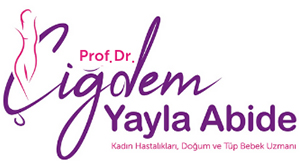Artificial intelligence, an innovative technology that provides many benefits in all areas of life, has begun to be actively used in the medical field, especially in in vitro fertilization treatment. Gynecology and Obstetrics Specialist Assoc. Prof. stated that artificial intelligence increases the success of pregnancy and live birth in in vitro fertilization treatment. Dr. Çiğdem Yayla Monument; “Undoubtedly, one of the most important steps in the in vitro fertilization treatment process is embryo transfer. Choosing the best quality embryo with a high adhesion rate greatly increases the live birth rate. "Thanks to artificial intelligence, it can now perform embryo quality analysis within seconds," he says.
Artificial intelligence increases the hope of many couples with its role in in vitro fertilization treatment. The use of artificial intelligence in the embryo transfer process allows the selection of the best quality embryo with a high adherence rate, which greatly increases live birth rates. Artificial intelligence stands out with its ability to quickly analyze embryo quality during the in vitro fertilization treatment process. Gynecology and Obstetrics Specialist Assoc. Dr. Çiğdem Yayla Abide said, "Artificial intelligence algorithms used in in vitro fertilization centers maximize the chance of pregnancy by evaluating the genetic and morphological characteristics of embryos. In this way, the probability of couples achieving successful results on the first try increases, and the treatment process becomes more effective and reliable. In embryology laboratories, artificial intelligence "With intelligence-supported embryo selection, the most suitable candidates are determined and couples are offered the highest chance of success," he says. Stating that the formation of quality embryos has increased with the smart sperm application that has recently started to be implemented in Turkey, Abide said, "Artificial intelligence is used for both embryo and embryo development." "It can be used in sperm selection, thus increasing the probability of achieving successful results. The sperm with the best mobility, speed and morphology can be detected within seconds with artificial intelligence," he says.
In the Future, AI-Assisted Embryo Selection May Become Standard Practice
The first artificial intelligence trial in 1997 was a revolutionary step in in vitro fertilization treatment. Since then, artificial intelligence applications have been increasing in the field of in vitro fertilization. Artificial intelligence, used in various fields such as embryo selection, prediction of pregnancy probability and personalization of treatment protocols, has become an important tool to increase the chances of success in in vitro fertilization treatment. Abide says, "Artificial intelligence-supported embryo selection can reveal details invisible to the human eye by examining the cellular structure of embryos. In the future, artificial intelligence-supported embryo selection is expected to become a standard practice. Further development of this technology can increase treatment success rates."
Artificial Intelligence-Assisted In Vitro Fertilization Treatment is an Important Screening Test for Genetic Risks
Stating that the pregnancy rates were quite high in the first attempt of artificial intelligence-supported in vitro fertilization treatment, Abide says, "What is important for us is not only to give the news of pregnancy, but also to herald the birth of healthy babies. We focus on increasing success with technology-supported methods by aiming for the best at every stage of the treatment process." Abide also states that artificial intelligence-supported in vitro fertilization treatment is an important screening test for couples about genetic risks; "Artificial intelligence can detect risk factors and direct couples to in vitro fertilization with genetic diagnosis. This method minimizes the risk of miscarriage during pregnancy and reduces the number of babies born with genetic diseases. However, there are certain criteria for genetic diagnosis," he says. Abide recommends that if the expectant mother is 38 years or older, if pregnancy has not occurred despite two best quality fifth day embryo transfers, if there has been a previous pregnancy loss or a genetic disorder has been detected, if the expectant mother or father has a history of genetic disorder, in vitro fertilization with genetic diagnosis can be used. states that you can apply.
Artificial Intelligence Also Prevents Psychological Fatigue in In Vitro Fertilization
Abide also underlines that the chance to achieve success at the first try, reduce the possibility of miscarriage, and freeze the best embryos provides financial and moral support to couples during the treatment process; “This method prevents recurrent in vitro fertilization failure and sometimes offers the opportunity to have a child even on the first try. In repeated failures, couples experience psychological fatigue. They may also have difficulty financially. Psychological fatigue affects the treatment process quite negatively. "It is possible to overcome this process in a very short time with the artificial intelligence method," he says.







